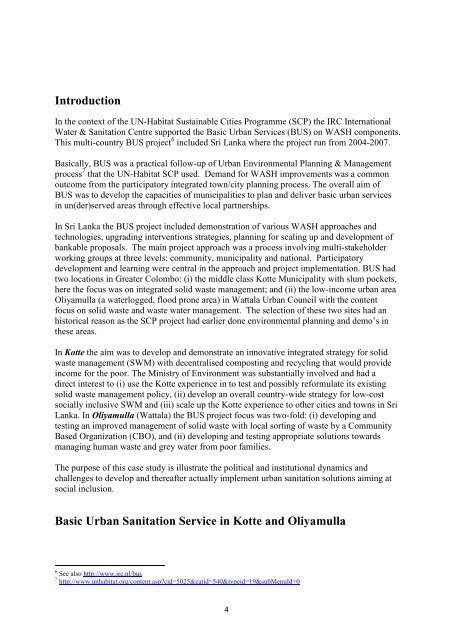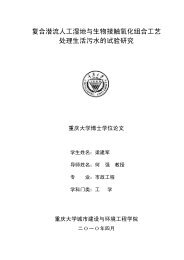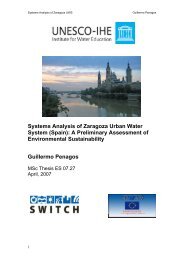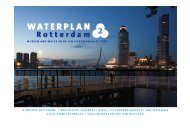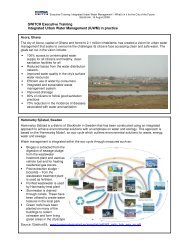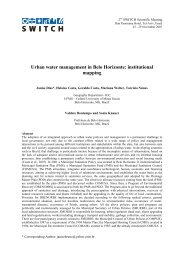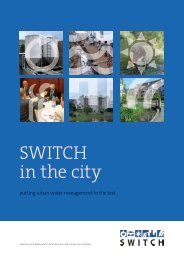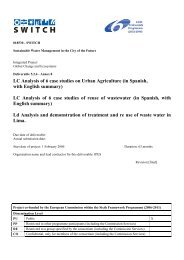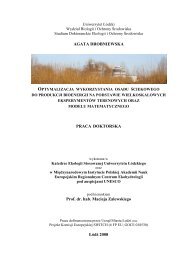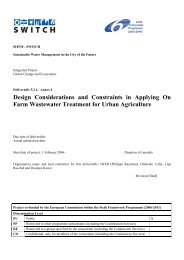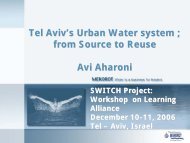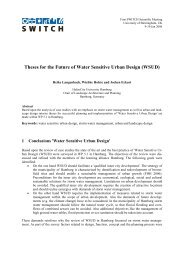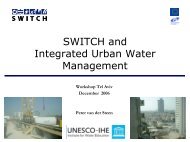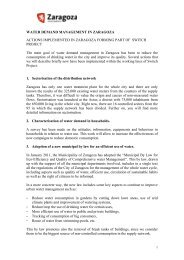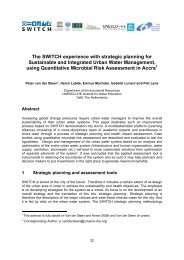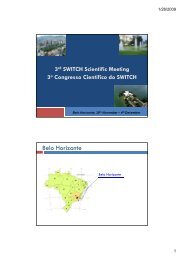Good practices for Social inclusion - Case studies and summary
Good practices for Social inclusion - Case studies and summary
Good practices for Social inclusion - Case studies and summary
Create successful ePaper yourself
Turn your PDF publications into a flip-book with our unique Google optimized e-Paper software.
Introduction<br />
In the context of the UN-Habitat Sustainable Cities Programme (SCP) the IRC International<br />
Water & Sanitation Centre supported the Basic Urban Services (BUS) on WASH components.<br />
This multi-country BUS project 6 included Sri Lanka where the project run from 2004-2007.<br />
Basically, BUS was a practical follow-up of Urban Environmental Planning & Management<br />
process 7 that the UN-Habitat SCP used. Dem<strong>and</strong> <strong>for</strong> WASH improvements was a common<br />
outcome from the participatory integrated town/city planning process. The overall aim of<br />
BUS was to develop the capacities of municipalities to plan <strong>and</strong> deliver basic urban services<br />
in un(der)served areas through effective local partnerships.<br />
In Sri Lanka the BUS project included demonstration of various WASH approaches <strong>and</strong><br />
technologies, upgrading interventions strategies, planning <strong>for</strong> scaling up <strong>and</strong> development of<br />
bankable proposals. The main project approach was a process involving multi-stakeholder<br />
working groups at three levels: community, municipality <strong>and</strong> national. Participatory<br />
development <strong>and</strong> learning were central in the approach <strong>and</strong> project implementation. BUS had<br />
two locations in Greater Colombo: (i) the middle class Kotte Municipality with slum pockets,<br />
here the focus was on integrated solid waste management; <strong>and</strong> (ii) the low-income urban area<br />
Oliyamulla (a waterlogged, flood prone area) in Wattala Urban Council with the content<br />
focus on solid waste <strong>and</strong> waste water management. The selection of these two sites had an<br />
historical reason as the SCP project had earlier done environmental planning <strong>and</strong> demo‘s in<br />
these areas.<br />
In Kotte the aim was to develop <strong>and</strong> demonstrate an innovative integrated strategy <strong>for</strong> solid<br />
waste management (SWM) with decentralised composting <strong>and</strong> recycling that would provide<br />
income <strong>for</strong> the poor. The Ministry of Environment was substantially involved <strong>and</strong> had a<br />
direct interest to (i) use the Kotte experience in to test <strong>and</strong> possibly re<strong>for</strong>mulate its existing<br />
solid waste management policy, (ii) develop an overall country-wide strategy <strong>for</strong> low-cost<br />
socially inclusive SWM <strong>and</strong> (iii) scale up the Kotte experience to other cities <strong>and</strong> towns in Sri<br />
Lanka. In Oliyamulla (Wattala) the BUS project focus was two-fold: (i) developing <strong>and</strong><br />
testing an improved management of solid waste with local sorting of waste by a Community<br />
Based Organization (CBO), <strong>and</strong> (ii) developing <strong>and</strong> testing appropriate solutions towards<br />
managing human waste <strong>and</strong> grey water from poor families.<br />
The purpose of this case study is illustrate the political <strong>and</strong> institutional dynamics <strong>and</strong><br />
challenges to develop <strong>and</strong> thereafter actually implement urban sanitation solutions aiming at<br />
social <strong>inclusion</strong>.<br />
Basic Urban Sanitation Service in Kotte <strong>and</strong> Oliyamulla<br />
6<br />
See also http://www.irc.nl/bus<br />
7<br />
http://www.unhabitat.org/content.asp?cid=5025&catid=540&typeid=19&subMenuId=0<br />
4


